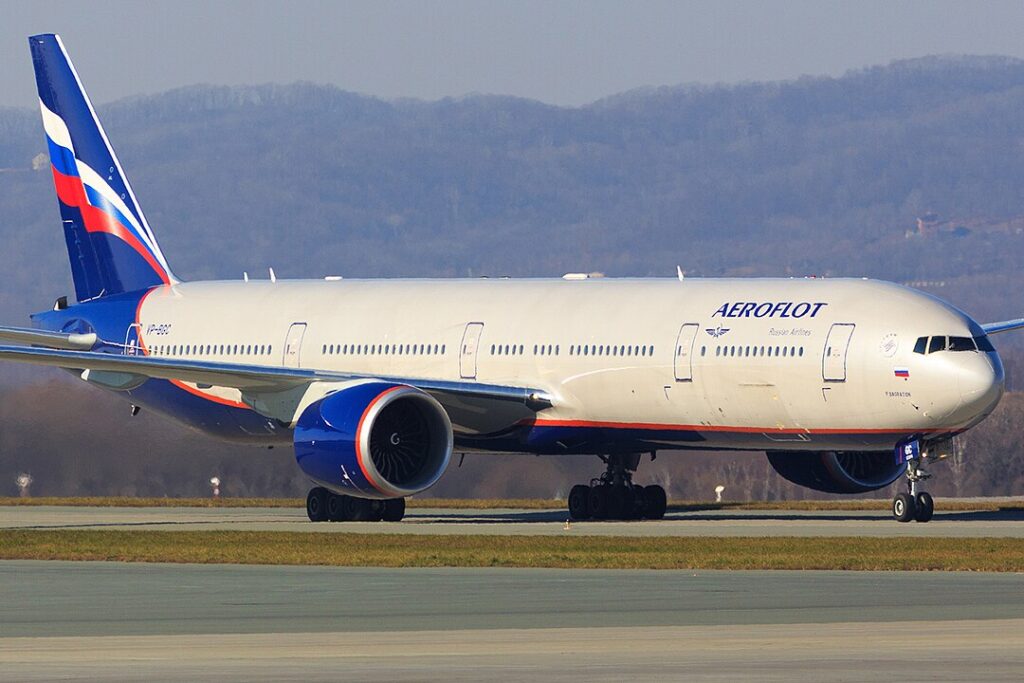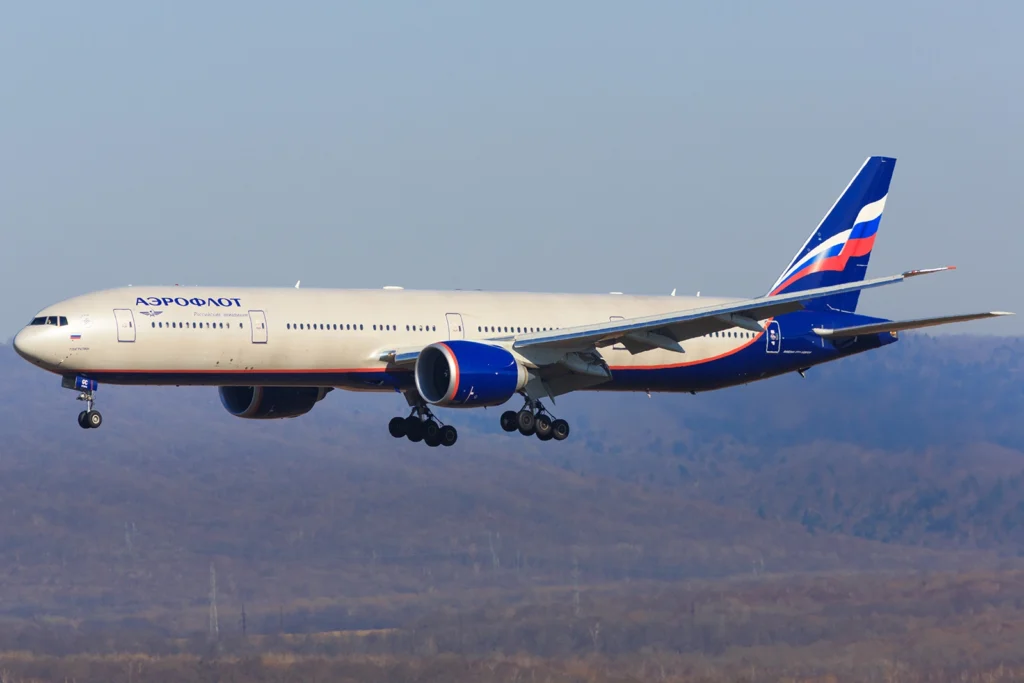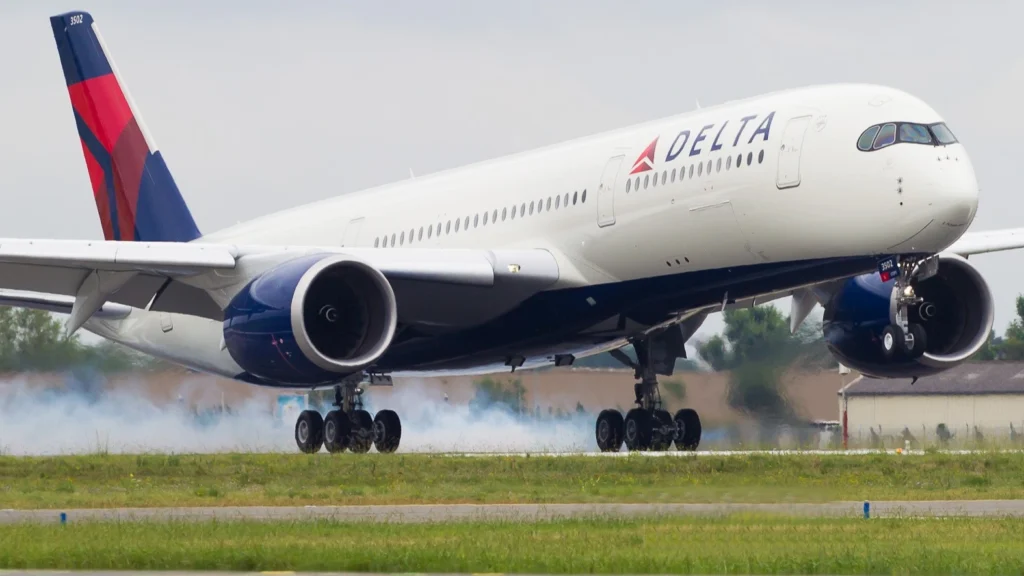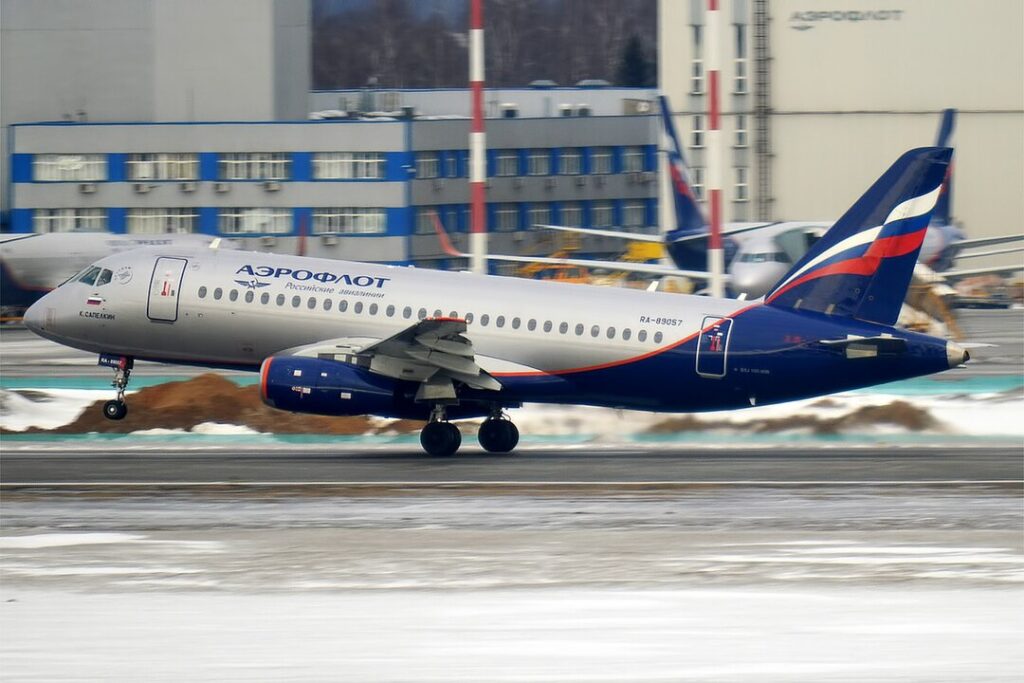
DELHI- On May 6, 2025, Aeroflot (SU) flight SU273, operated using a Boeing 777, departed Bangkok (BKK) en route to Moscow (SVO).
At approximately 3:50 PM IST, the aircraft diverted to Delhi’s Indira Gandhi International Airport (DEL) after reports of fumes in the cabin.
 Photo: By Fedor Leukhin – VVO_0669, CC BY-SA 2.0, https://commons.wikimedia.org/w/index.php?curid=30764384
Photo: By Fedor Leukhin – VVO_0669, CC BY-SA 2.0, https://commons.wikimedia.org/w/index.php?curid=30764384Aeroflot Emergency Landing in Delhi
According to FlightRadar24 data, Aeroflot flight SU273 took off from Bangkok at 6:41 UTC. After being airborne for over four hours, the crew reported smoke in the cabin. Following this, they diverted to Delhi at 10:52 UTC.
The flight, carrying 425 passengers, landed safely, and all passengers were reported safe, according to Delhi Airport sources.
The aircraft involved in the incident is a Boeing 777-300ER, registered as RA-73142. Further, it is a 5-year-old aircraft powered by GE90 engines.
 Photo: By Fedor Leukhin – VVO_0651, CC BY-SA 2.0, https://commons.wikimedia.org/w/index.php?curid=30764383
Photo: By Fedor Leukhin – VVO_0651, CC BY-SA 2.0, https://commons.wikimedia.org/w/index.php?curid=30764383The cause of the fumes remains unclear, but such incidents often stem from engine oil or hydraulic fluid contamination, as noted in aviation safety analyses.
Aeroflot was unavailable for immediate comment, and investigations are ongoing to determine the exact cause.
The swift response by the crew and air traffic control ensured a safe outcome, underscoring the importance of emergency protocols in aviation.
 Photo: Clément Alloing
Photo: Clément AlloingSimilar Incidents
Emergency landings due to cabin fumes or smoke are not isolated events. On February 22, 2025, Delta Air Lines (DL) flight DL43, an Airbus A350-900, departed Los Angeles (LAX) for Sydney (SYD). Shortly after takeoff, cabin crew reported smoke in the rear galley, prompting the pilots to halt their climb at 10,000 feet and return to LAX.
The aircraft landed safely 28 minutes after departure, with no active smoke or cockpit warnings reported upon landing. Fire services escorted the plane to the gate, and medical personnel were on standby, though no injuries occurred. This incident highlights the cautious approach airlines take when smoke is detected, prioritizing passenger safety.
On April 26, 2025, British Airways (BA) flight BA216, a Boeing 777, departed Dulles International Airport (IAD) for London Heathrow (LHR).
Approximately 90 minutes into the flight, the crew reported a suspected bird strike and fumes in the cabin, leading to an emergency diversion to Boston Logan International Airport (BOS). The aircraft landed safely at 7:30 PM ET, with no injuries reported.
A Massachusetts Port Authority spokesperson confirmed the bird strike, but the landing proceeded without incident. This event demonstrates how external factors, like bird strikes, can trigger cabin issues requiring immediate action.
Data from 2025 shows a slight uptick in emergency landings due to fumes or smoke, often linked to mechanical issues or external factors like bird strikes.
 Photo: By Anna Zvereva from Tallinn, Estonia – Aeroflot, RA-89057, Sukhoi Superjet 100-95B, CC BY-SA 2.0, https://commons.wikimedia.org/w/index.php?curid=78120931
Photo: By Anna Zvereva from Tallinn, Estonia – Aeroflot, RA-89057, Sukhoi Superjet 100-95B, CC BY-SA 2.0, https://commons.wikimedia.org/w/index.php?curid=78120931Aeroflot’s Safety Record
Aeroflot (SU), Russia’s flag carrier, has a complex safety history. From 1946 to 1989, the airline recorded 721 incidents, largely during the Soviet era, with 8,231 fatalities, according to the Aircraft Crashes Record Office.
Since 1995, however, Aeroflot’s incident rate has dropped significantly, with only 11 incidents by 2025, three of which involved fatalities.
The SU273 emergency landing adds to this modern record but aligns with non-fatal incidents, reflecting improved safety practices.
Stay tuned with us. Further, follow us on social media for the latest updates.
Join us on Telegram Group for the Latest Aviation Updates. Subsequently, follow us on Google News
British Airways A350 Makes Emergency Landing in Cape Town
The post Aeroflot Bangkok-Moscow Flight with 777 Makes Emergency Landing in Delhi appeared first on Aviation A2Z.


















